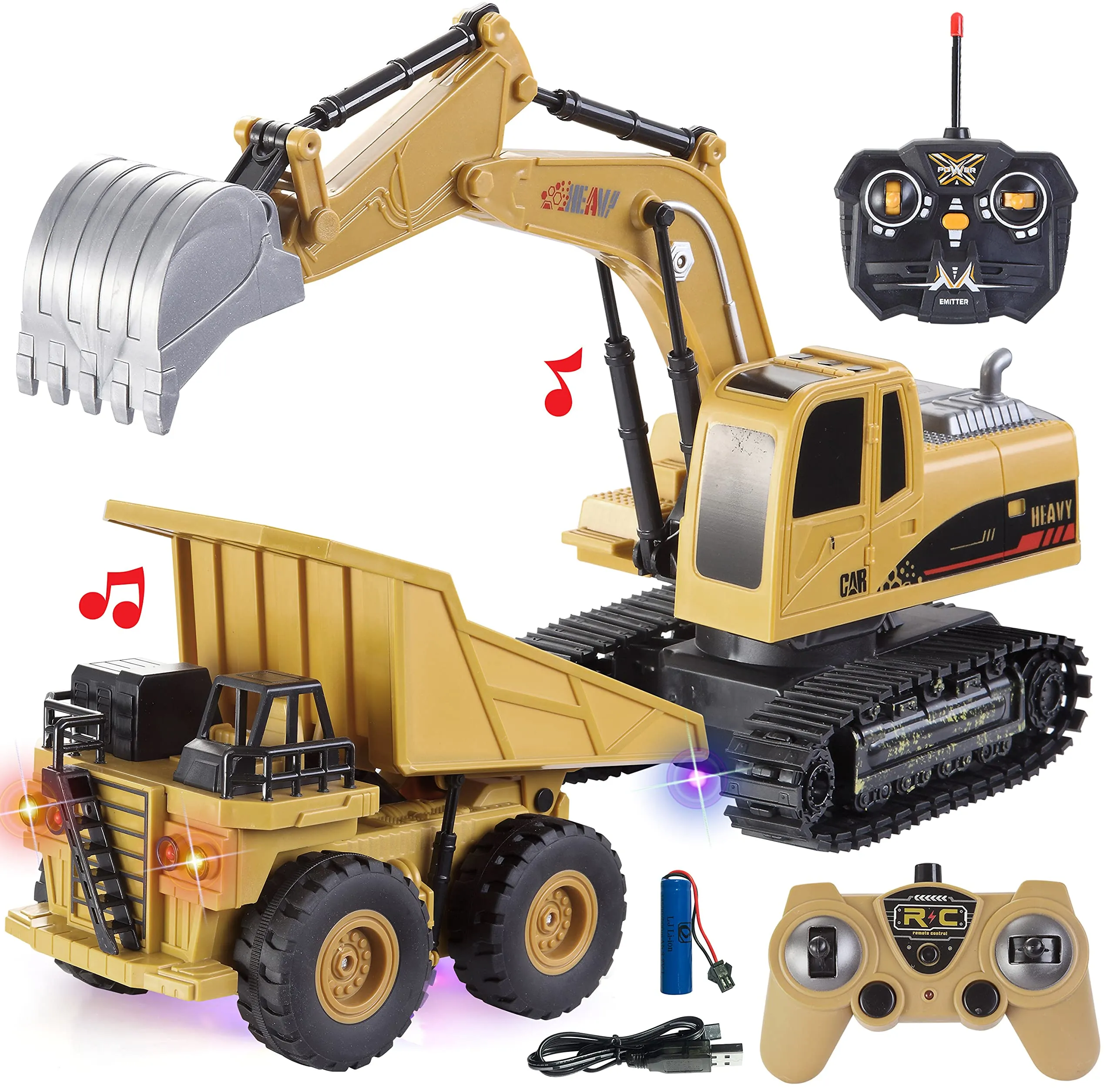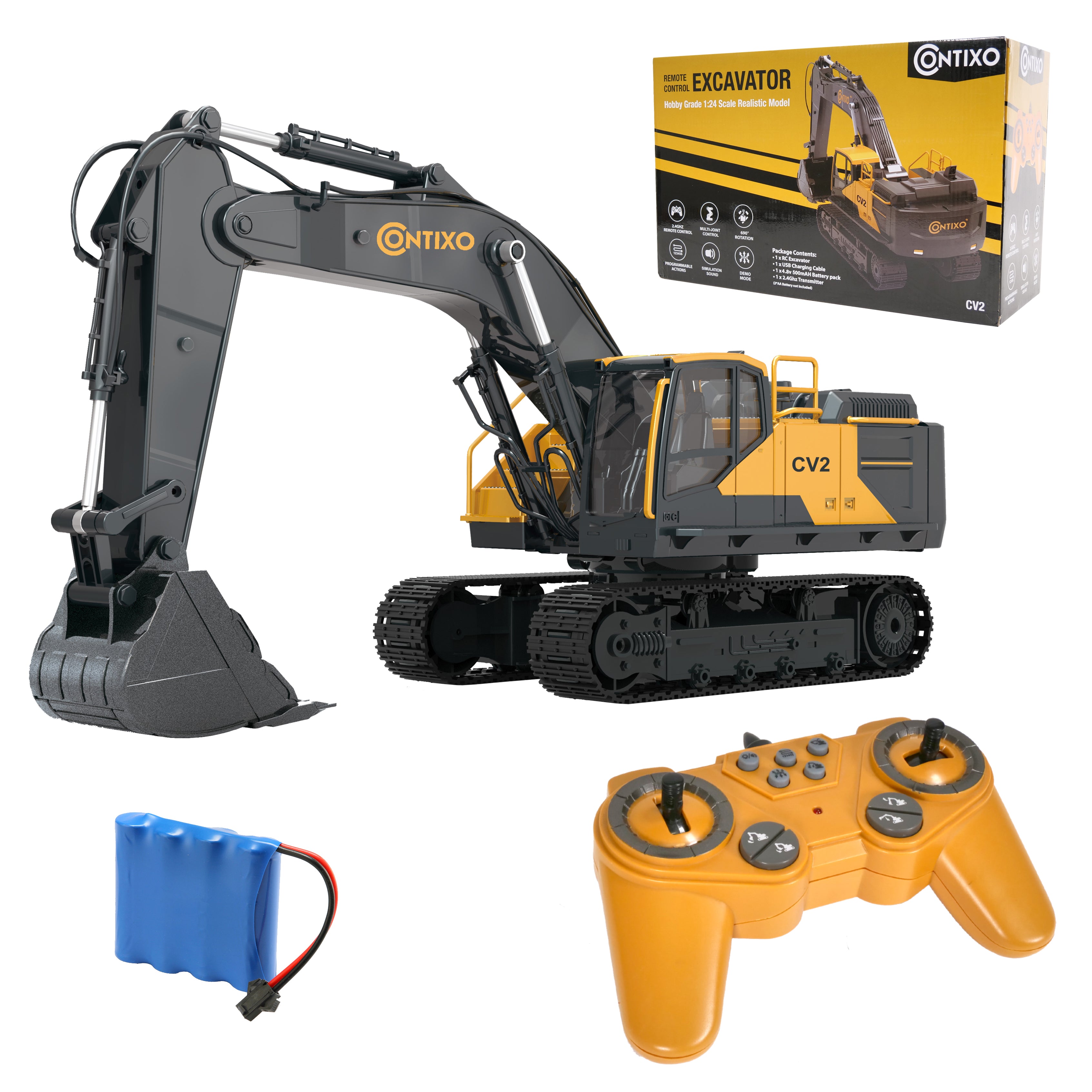Discover the Significance of Excavator in Modern Construction Projects
Excavators are vital tools in modern building and construction tasks. Their flexibility allows them to carry out a wide array of jobs, from digging and grading to demolition and site prep work. Advanced attributes, such as hydraulic add-ons and general practitioners, enhance their capabilities and effectiveness on task sites. As the sector progresses, the value of excavators expands also more. Recognizing their duty can disclose understandings right into the future of building and construction methods. What lies in advance for these machines?
The Convenience of Excavators in Numerous Projects
Although excavators are typically linked with large-scale construction projects, their convenience allows them to be utilized in a broad range of applications, from domestic landscaping to energy upkeep. In urban setups, excavators can navigate tight rooms to dig structures for homes or set up drainage systems. Their ability to do delicate jobs makes them ideal for landscaping jobs, where they can dig deep into for fish ponds or plant trees. Additionally, excavators play an important role in energy upkeep, successfully digging trenches for pipes or wires without disrupting bordering areas. In farming applications, they help in land clearing and soil prep work. Their versatility enables them to be outfitted with different add-ons, enhancing their capability throughout different jobs. This diverse nature of excavators not only simplifies various building processes however additionally shows their essential function in contemporary facilities advancement and upkeep.
Secret Attributes and Sorts Of Excavators
The conversation on crucial functions and types of excavators highlights the necessary features that make these devices vital in building. Different excavator types, each designed for certain tasks, demonstrate their versatility and efficiency throughout various applications. rc excavator. Understanding these classifications and features is vital for optimizing their use in modern-day construction jobs
Excavator Enters Introduction
Excavators play a critical function in modern-day building, supplying convenience and efficiency across different jobs. These heavy equipment units come in a number of kinds, each customized for certain applications. The most usual types include crawler excavators, known for their security on unequal surface, and rolled excavators, which supply better mobility on smooth surface areas. Miniature excavators are preferred for limited areas and small-scale jobs, while long-reach excavators are developed for deep digging. Furthermore, there are specialized excavators, such as hydraulic excavators, which boost power and accuracy. Each kind features one-of-a-kind capabilities, making them vital for tasks varying from excavating and grading to demolition and material handling. Understanding these variations enables building experts to pick the ideal excavator for their task requires.
Secret Includes Explained
Comprehending the crucial attributes of excavators boosts their effective application in building and construction jobs. Excavators are defined by their powerful hydraulic systems, which offer the needed pressure for digging, lifting, and moving products. Their expressed arms permit a large range of motion, helping with specific procedures in constrained spaces. Furthermore, the selection of attachments, such as containers, grapples, and augers, increases their convenience to fulfill various task needs. The size and weight of excavators additionally add to their security and ability to move on different surfaces. Moreover, advancements in innovation have actually led to the assimilation of general practitioner and automation, boosting precision and performance in excavation jobs. These features jointly position excavators as indispensable devices in modern-day building.
Applications in Building and construction
Changing building websites, excavators play a crucial function across numerous applications, ranging from domestic building projects to massive facilities developments. These functional machines are outfitted for jobs such as digging foundations, trenching for utilities, and site grading. Different types of excavators, consisting of spider, rolled, and mini excavators, provide certain advantages tailored to the job requirements. Spider excavators master rough terrains, while rolled excavators provide wheelchair on paved surface areas. Mini excavators are ideal for constrained rooms, making them prominent in urban setups. The performance and power of excavators considerably accelerate building and construction procedures, guaranteeing prompt project completion. Their adaptability even more improves their significance, allowing building groups to take on a diverse array of obstacles effectively.
Enhancing Performance and Productivity on Work Sites
Taking full advantage of performance and productivity on job websites is an essential objective in modern building and construction. Excavators play a pivotal function in accomplishing this goal by enhancing various tasks. Their ability to execute numerous features-- such as excavating, training, and grading-- reduces the requirement for additional devices, thereby saving time and resources.Moreover, excavators boost operations by enabling faster conclusion of tasks. With advanced features like hydraulic accessories and GPS innovation, they can implement specific procedures that minimize mistakes and rework. This accuracy not only improves the top quality of job yet additionally maximizes product use, adding to set you back savings.The versatility of excavators permits them to adjust to different site problems, making certain that jobs advance smoothly no matter challenges. By incorporating excavators right into building and construction processes, groups can greatly increase their general productivity, causing timely project completion and increased profitability.
Safety And Security Benefits of Making Use Of Excavators
Excavators greatly boost safety and security on building and construction sites through enhanced operator visibility and lowered manual work threats. By offering operators with a clear view of their environments, excavators aid to avoid injuries and crashes. In addition, the machinery minimizes the need for employees to participate in dangerous hand-operated jobs, better advertising a much safer workplace.
Improved Driver Exposure
Although building sites can be disorderly and loaded with potential dangers, enhanced driver exposure plays an important role in ensuring safety when making use of excavators. Modern excavators are created with big, unblocked home windows and strategically positioned mirrors, allowing operators to maintain a clear sight of their environments (rc excavator). This boosted visibility is critical for spotting pedestrians, other machinery, and numerous barriers, significantly lowering the danger of mishaps. Additionally, numerous excavators include advanced innovation, such as electronic cameras and sensors, to supply operators with additional viewpoints, better improving understanding. The ability to see even more plainly not only help in effective operation but additionally promotes a safer workplace, making it less complicated for drivers to browse intricate More Info building websites without endangering safety and security requirements
Reduced Manual Work Risks
When manual work is lowered with the use of excavators, many safety benefits arise, markedly enhancing the well-being of building and construction employees. Excavators minimize the physical strain connected with hefty training and repetitive jobs, efficiently lowering the danger of bone and joint injuries. By automating procedures such as digging, grading, and moving products, they allow workers to preserve a much safer distance from possible risks. Additionally, excavators are equipped with advanced safety functions, such as rollover protection systems and enhanced operator comfort designs, which further safeguard workers on website. The outcome is a considerable reduction in office mishaps and injuries, resulting in raised efficiency and morale amongst building and construction teams. Ultimately, the fostering of excavators adds to a safer and a lot more efficient construction setting.
Excavators in Earthmoving and Website Preparation
In contemporary building, a substantial section of earthmoving and website prep work tasks relies upon the effectiveness and adaptability of excavators. These makers are developed to handle various dirt types and terrain, making them indispensable for grading, digging, and trenching tasks. Their hydraulic arms can be equipped with different accessories, such as pails and augers, permitting drivers to tailor their method based upon particular project requirements.Excavators stand out at moving big volumes of earth promptly and efficiently, which speeds up the overall building and construction timeline. They can browse limited spaces and challenging sites where typical equipment may have a hard time, boosting productivity. In addition, the precision of excavators guarantees that site preparation follows strict specifications, lessening the danger of errors that could bring about costly rework.
The Role of Excavators in Demolition Tasks
Excavators play a crucial duty in demolition jobs, as they have the power and agility required to take down frameworks successfully. Equipped with different attachments such as hydraulic breakers, shears, and grapples, these makers can adapt to various demolition demands, whether for small structures or big commercial sites. Their adaptability enables drivers to tackle complicated tasks while preserving safety and precision.In enhancement to their demolition abilities, excavators assist in particles elimination, guaranteeing that work websites remain orderly and secure. By damaging right here down frameworks into workable pieces, they allow for structured clearing and recycling of materials, lining up with modern sustainability efforts.Moreover, excavators can access limited spaces and navigate uneven terrain, making them indispensable in city demolition jobs. In general, their durable design and multifunctionality make excavators an essential asset in the demolition stage of building, adding considerably to task timelines and performance.


Future Trends in Excavator Technology and Use
As the construction industry evolves, innovations in excavator modern technology are positioned to transform their use and effectiveness noticeably. One significant fad is the integration of automation and expert system, permitting excavators to run with minimal human treatment. This shift will boost accuracy in tasks such as grading and trenching, minimizing human error and enhancing productivity.Additionally, the rise of electric and hybrid excavators is shaping a much more lasting anchor building and construction setting, reducing carbon exhausts and gas costs. Boosted telematics systems are also emerging, allowing real-time tracking of equipment performance and maintenance needs, which can lead to far better functional effectiveness and longer equipment lifespan.Moreover, improvements in add-on modern technology are broadening the convenience of excavators, permitting them to do a more comprehensive range of jobs. The mix of these fads demonstrates a future where excavators are smarter, greener, and a lot more adaptable, eventually reshaping construction job dynamics.
Frequently Asked Questions
How Do Excavators Compare to Various Other Building Machinery?
Excavators, characterized by their adaptability and power, stand out in excavating and earthmoving contrasted to various other machinery. Their capability to perform various tasks, including lifting and demolition, makes them vital in building tasks, enhancing general efficiency.

What Is the Ordinary Life-span of an Excavator?
The average lifespan of an excavator commonly ranges from 7,000 to 10,000 operating hours, relying on upkeep, usage conditions, and design. Proper treatment can prolong this lifespan, guaranteeing peak efficiency throughout its operational years.
How Are Excavators Kept for Optimum Performance?
Excavators require regular maintenance for peak performance, including regular examinations, fluid checks, filter replacements, and timely fixings. Carrying out a preventative upkeep schedule aids lengthen their life-span and guarantees effective operation in different construction settings.
What Are the Prices Related To Getting an excavator vs. leasing?
The prices related to getting an excavator versus renting vary significantly. Renting out offers lower upfront costs but can gather in time, while purchasing calls for a considerable first financial investment, but gives lasting savings and property possession advantages.
What Training Is Needed to Operate an Excavator?
Running an excavator needs specialized training, typically including security methods, maker operation methods, and ecological awareness. Accreditation programs commonly mandate practical experience, enabling drivers to handle numerous jobs successfully while guaranteeing conformity with sector policies. The most usual types consist of spider excavators, known for their security on uneven terrain, and wheeled excavators, which give greater flexibility on smooth surface areas. Miniature excavators are preferred for small-scale tasks and limited areas, while long-reach excavators are created for deep excavating. In addition, there are specialized excavators, such as hydraulic excavators, which enhance power and precision. Various types of excavators, including crawler, wheeled, and mini excavators, provide specific advantages tailored to the project requirements. Spider excavators excel in harsh surfaces, while rolled excavators supply wheelchair on smooth surface areas.